Before we delve into its influence, it is essential to understand what Peer Coach Training is.
It is a structured program that trains individuals with personal experience in recovery, mental health, or life issues to serve clients on their own journey. Nevertheless, it is not a treatment, and it is not related to giving advice.
Rather, peer coaching is based on the development of trust based on shared experiences. It is non-judgmental in its support. In addition, it gives other people the mandate to come up with their own solutions. You get peer coach training to understand how not to use your story as a burden, but as a bridge.
Why is mental health support from peers essential in 2025?
Generation Z students are experiencing different mental health issues. Different researches indicate that they are in worse mental health conditions compared to their predecessors. Furthermore, this trend is supported by social media and severe socioeconomic strains.
Peer support gets its power from its authenticity. Conventional mental practitioners offer guidance; on the contrary, a peer support individual exchanges understanding. Peer coaching has nothing to do with projecting a perfect image. The power lies in your honesty, not in having all the answers.
As a peer support specialist, you provide a connection that comes from the experience of living it. Your story breaks down walls and creates trust, like no textbook can. Thus, it establishes equal, human-to-human relationships that are safe and empowering.
How To Choose the Right Program for Your Journey?

Peer Coach Training adds expert processes and precise principles to your raw personal insight. Your personal journey is the basis. In the meantime, training is just a way to give your service to others with structure, safety, and professional tools. Role-play scenarios and group discussion programs are exercises designed to equip you to face actual peer coaching scenarios.
Online courses allow you to study at your own pace without any additional pressure. Also, select programs that result in well-regarded qualifications. A peer coach academy provides an accredited certificate program with mentors, peer networking, and a cooperative circle to guide you on your path. Try to pick courses that mix ideas with hands-on practice. In this manner, you are prepared on the first day.
Building Towards Professional Certifications
There are a lot of ways to develop your peer support career. As an example, a recovery coach academy offers extensive training in the recovery core values and principles. These programs involve motivational interviewing, stages of recovery, and wellness planning.
Likewise, substance abuse professional certification provides opportunities in the sphere of addiction treatment. SAC certification may be the next step if you want to deal with the challenges of substance use. This qualification will enable you to practice in the area as you fulfill your needs. Moreover, you can add a mental health counselor certificate program to your peer support experience.
The Real-World Impact of Trained Peer Coaches
Peer support workers are gradually being incorporated into mental health services. Research indicates that peer support workers enhance the results of addiction treatment and community outreach teams.
Likewise, psychosocial skills training facilitated by peer education improves functioning levels. According to the participants, there are positive impacts on self-confidence, communication skills, and social adaptation. The mental health professionals and psychiatric nurses also acknowledge the importance of these interventions.
Peer supporters operate in various environments and with varied populations. Mental health peer specialists work with individuals who have mental illnesses. Recovery coaches work towards substance use recovery.
Youth peer supporters engage with youth who have mental health issues. There are also family peer advocates who assist families in the mental health systems. Lived experience is used to build meaningful connections in each role.
Start Your Journey as a Peer Coach Today
It takes time to develop your experience. The first steps are to join local peer support networks and subsequently, recovery community events. Try to find peer specialists who are certified to mentor you on the journey.
Volunteer in mental health organizations to have practical experience. Engage in advocacy activities that will support your values. These measures develop your expertise, as well as your network.
Flexibility is needed when you are combining work, family, and personal development. So, look for programs with anytime access. Short lessons, which are available 24/7, help you move forward without the need to interfere with your daily routine.
Video support enables you to learn and retain important theories. You have the option of viewing them once again. Simple exercises let you try out techniques in your own time.
Conclusion
Your lived experience holds real power. When it is combined with proper training, it becomes a tool for transformation. If you are considering mental health assistance, supporting substance abuse recovery, or are a general peer coach, the journey begins with proper training.
Laitinen Academy has value-centered, comprehensive programs. Their online, at your own pace format provides the support and training you need while also recognizing your own time and conditions.
Frequently Asked Questions
1: Do I need a college degree to become a peer coach?
No. Most peer coach training programs value lived experience. Of course, you need relevant experience with recovery or mental health challenges. Certification, however, entails completing an accredited training program.
2: How long does it take to complete peer coach training?
The duration to become a peer support specialist depends on the chosen program. Self-paced options allow you to finish coursework in a few weeks or stretch it to several months. It is based on your schedule and the amount of time you can give. In addition, there are certifications that mandate practice hours after coursework.
3: Does peer coaching work in a clinical environment?
Yes, peer coaches are now used in a lot of clinical settings. Peer support is becoming more and more recognized in hospitals, treatment centers, and mental health clinics. Peer coaches, however, are useful adjuncts to licensed clinicians and not substitutes. Their work is centered on assistance, empowerment, and experience instead of clinical care.
